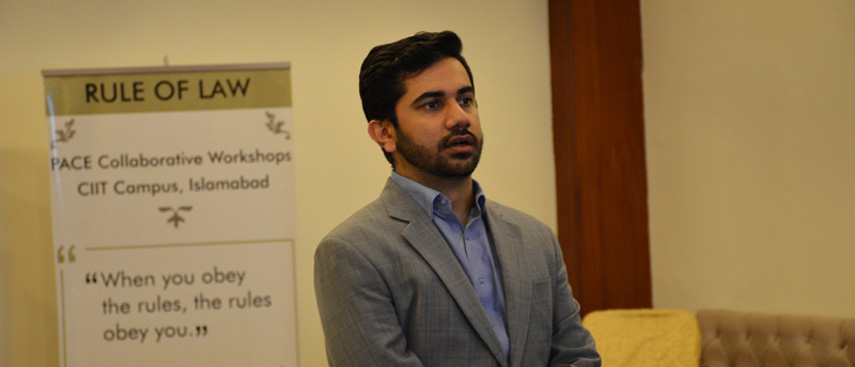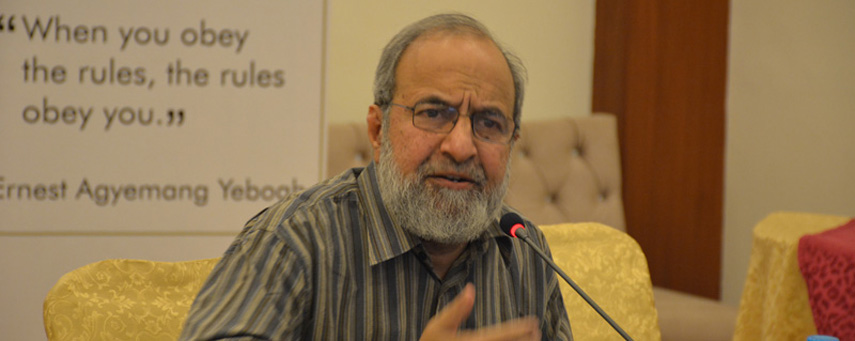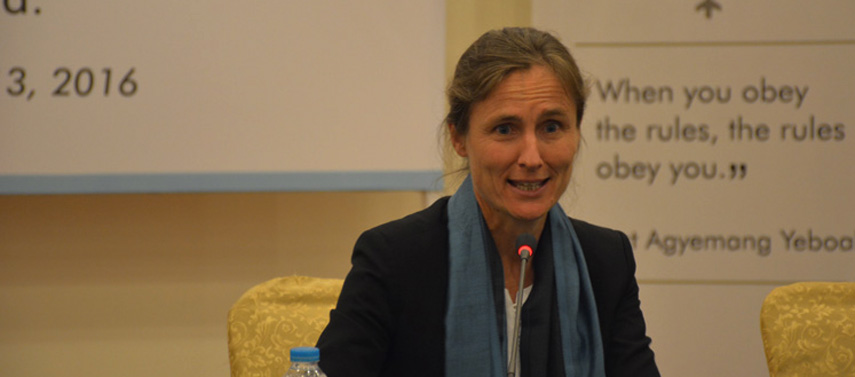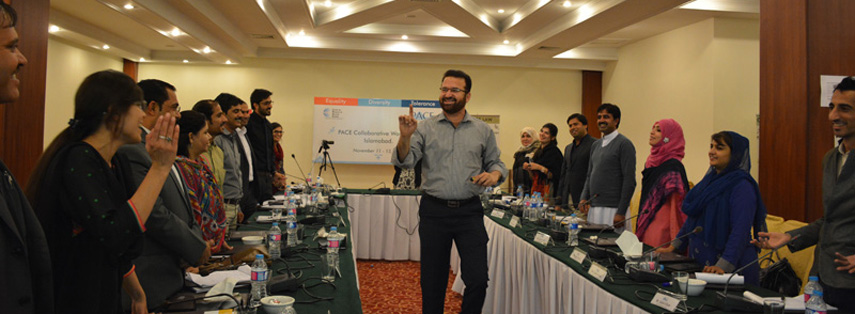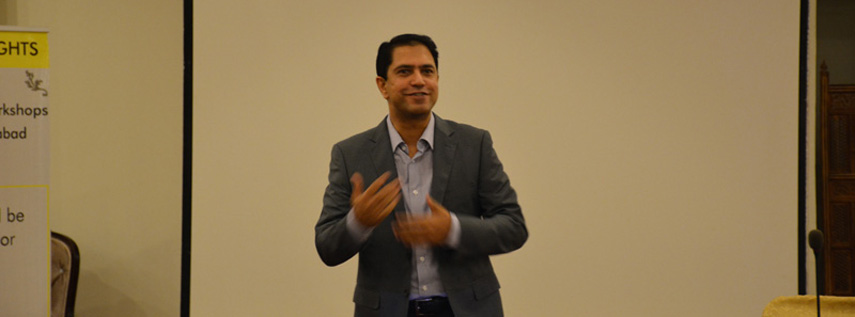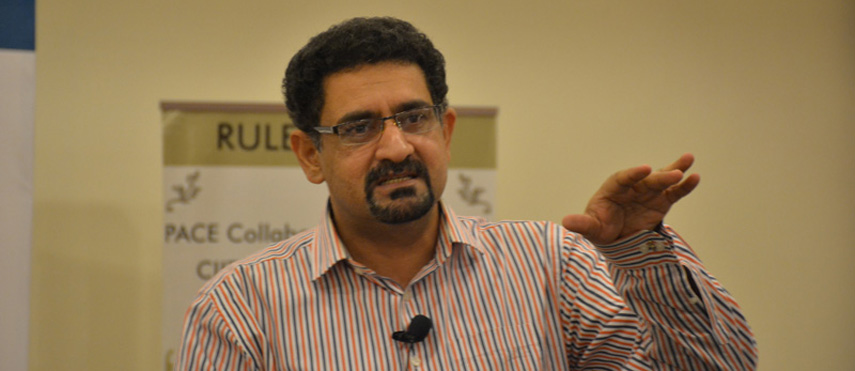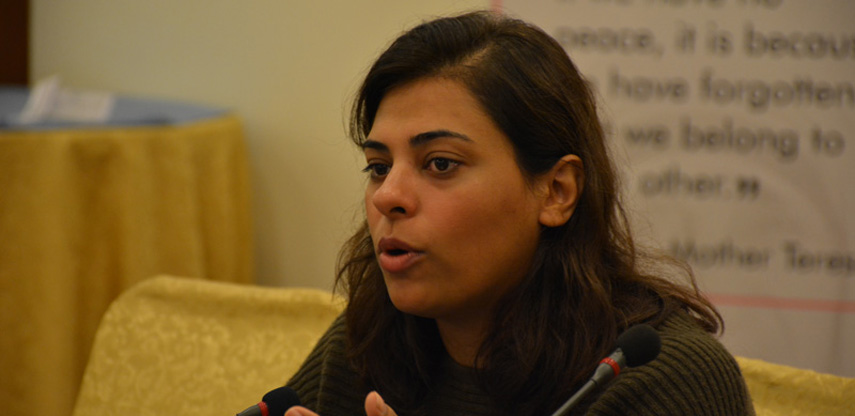The Center for Research and Security Studies (CRSS) conducted the tenth three-day PACE collaborative workshop for young university lecturers and professors between November 11-13, 2016 at Hill View Hotel, Islamabad. The workshop was conducted under the umbrella of the Pakistan Center of Excellence (PACE), a counter-radicalization, pluralistic values focused project, in collaboration with the Dutch Government. Participants included young university lecturers and professors from Hazara University, Mansehra, Balochistan University of Information technology, Engineering and Management Sciences, Quetta, University of Sindh, Jamshoro, Shaheed Benazir Bhutto Women University, Peshawar, University of Science and Technology, Bannu, Karakoram International University, Gilgit, University of Poonch, Rawala Kot, University of Sargodha, Sargodha, Government Post Graduate College, D. I. Khan, Abdul Wali Khan University, Mardan, University of Central Punjab, Lahore, and Bahria University, Islamabad.
Mr. Zeeshan Salahuddin, Project Manager PACE, and Director Communications and Strategy at CRSS, welcomed participants to the workshop, saying that PACE is put together by CRSS to counter radicalization, inculcate critical thinking, question preconceived notions and narratives, and embed the national discourse in constitutionalism and the rule of law. He stressed that PACE inculcates the universal values of tolerance and acceptance; tolerance is one virtue that leads to a range of other ideas such as perseverance, coexistence and the idea of peace building. He asked participants to apply their learning here in their own lives and, particularly, the lives of their students.
He elaborated that adherence to rule of law, respect for diversity, opinions and rights, and only the teachers, the gate keepers of the future, can inculcate ideas of perseverance, coexistence, peace building and tolerance in the minds of the youth.
Dr. Khalid Zaheer kicked off the first session of the day and spoke on the topic of religious intolerance. He said that religious tolerance is a right everyone should give to others, to believe in and practice faith of their choice. We can’t impose our views on others and we can’t blame others for their beliefs and ideas. You can’t respect a view despite of strongly disagreeing with it but you can show tolerance towards it. If we allow others to have religious freedom and don’t impose our views on others genuinely, that is called religious tolerance. We have no right to impose our beliefs on others. Our attitude towards other’s beliefs should be genuine and positive. People usually believe in and practice ideas and beliefs what they have learnt from their elders or what they have been convinced by.
Islam teaches us not to use abusive language for other religions or faiths and respect them. If Islam says so; then why many Muslims are intolerant? There are a few arguments in front of them that are making them violent and intolerant. There is also a restrained religious setting who cut people off the society and there is always confinement in communication. Questioning is not allowed in such environments and they make you blindly follow the ones who lead such groups. We need to get rid of such an environment, groups and thinking that are leading us to extremism and religiously intolerant society.
We should not be violent towards the people who are not of the same belief as us. Everyone has right to do whatever they want and believe. Being humans, we expect others to tolerate us; same is what they expect from us.
Her Excellency Ambassador Jeannette Seppen of The Netherlands was a visiting guest at PACE Collaborative Workshops. She said that Netherlands is a multicultural society where people live peacefully; Dutch people love to travel and interact with other cultures and ethnicities. Overall, the Dutch system is liberal, socialist and profuse accepting all the diversity in it.
She said openness towards other’s thinking and understanding is necessary; keeping in view the context of Pakistan, they shall have to be a bit of more tolerant and respectful towards the rights of minorities and marginal groups.
While responding to a question she said that education is free for all up until secondary level in Netherlands. Schools can teach comparative religions and comparative political systems to give students broader perspectives of different beliefs and make them able to critically think about it. Teachers should encourage students to ask questions; this is the only way you can help your students to look at others with a more respectful and humble manner.
Mr. Safiullah Gul, bureau chief for a private television channel in Peshawar, was the last speaker of the day and conducted a session on leadership and motivation where he emphasized the extent to which effort is directed towards a goal, and its components: activation, persistence and intensity.
He elaborated the phrase that he who fails to plan actually plans to fail and shared a story of a man who alone, changed the course of history with motivation and persistence despite of all the opposition from the society. Being alone doesn’t actually matter if you have goals and objectives set in your mind. To achieve these goals, you actually need to overcome your fears and insecurities. An individual sometimes can set an example and be a motivation for others.
His session, filled with activities to enhance creative and critical thinking, focused on looking at things from a slightly different perspective to encourage problem-solving.
Mr. Rizwan Ali was the first speaker on the second day and spoke on the topic of respect of diversity, rights and opinions. He elaborated the discussion saying that diversity is valuing the differences between the people and ways in which those differences contribute to healthy relations. It refers to the ways that individuals are unique and differ from one another and embracing and celebrating the differences we all embody.
He expanded different types of diversity as biological, sexual, religious, cultural, ethnic and political. He said that diversity involves how we recognize our unique differences, how we attract people of different backgrounds, how attitudes of others affect us all, and how to create an environment where we can promote and respect diversity? One of the aspects of diversity is that we should treat others as we want ourselves to be treated.
Diversity teaches us to tolerate, accept, respect and ultimately celebrate the differences.
Mr. Zubair Ghouri was the second speaker of the day and he kicked off his session on the topic of fundamentals of democracy, governance and accountability. Separation of power, pluralistic system, independent judiciary, free and independent media, and respect for rule of law, accountability and transparency were shared and discussed as basic elements of democracy. He also spoke on how accountability may be used as a prerequisite for successful democratic systems and how democracy stabilizes with able leadership.
Modern democracies involve such a large number of people that it is physically impossible for them to sit together and make a collective decision. Even if they could, the citizens do not have the time, the desire or the skills to take part in all the decisions. Democracy stabilizes with able leadership and this is what we lack in Pakistan. Good governance can emerge only if democracy is mature and stable.
Ms. Sara Farid was the last speaker of the workshop and spoke on the topic of media and ethics. She started her session saying that media should consider the values and norms of a society and report keeping in view the sensitivities of the culture. Realities and factual information should not be concealed intentionally. Today’s media is very much about sensationalism and ratings, but ethics and morality should be kept above all and biased and abusive attitude should not be accepted. She stressed on the importance of being neutral and presenting authentic news.
Mr. Zeeshan Salahuddin in his closing remarks said that said that it was important to inculcate critical thinking in our youth, and to equip them with the art of questioning the narratives they had been given. He said that teachers were the gatekeepers of the future, and had the ability to shape an entire generation’s mindset to propagate tolerance, diversity and equality.
He said that strict adherence to the rule of law and equal citizenry is the basis of a progressive society and Pakistan needs to embrace these ideals in order to cultivate tolerance and diversity.

